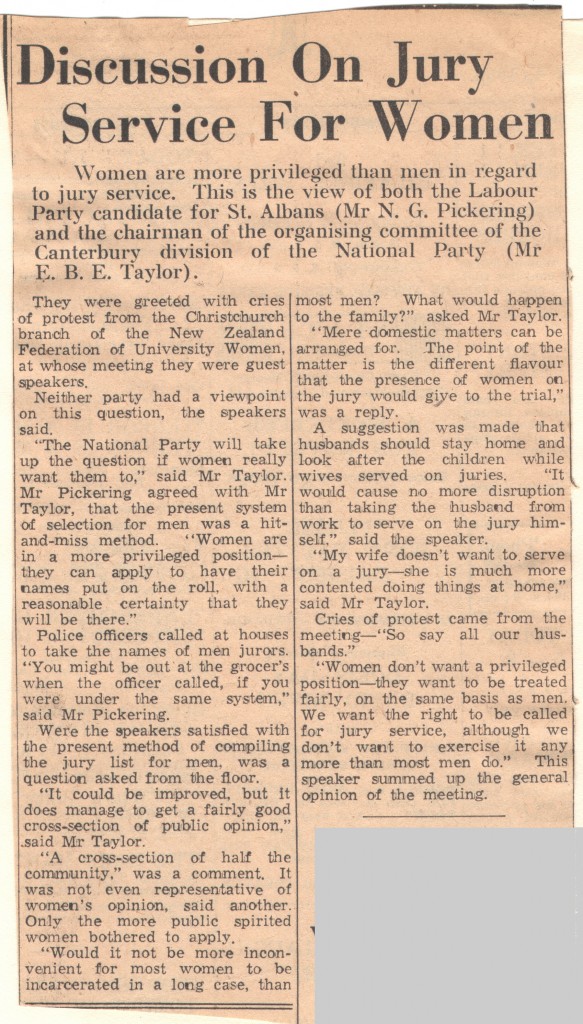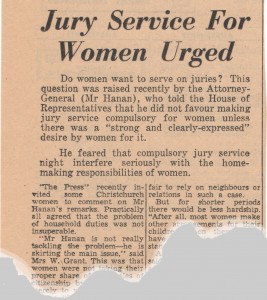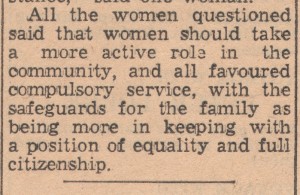Jury Service for Women
We were a subversive bunch in the Women’s Dept. of The Press, Christchurch’s morning newspaper, even though the editorial stance of The Press was socially and politically conservative. In the early 1960s a big issue for women was the right to serve on juries on an equal basis with men. Until 1942, New Zealand women were denied the right to sit on juries, and even after that date, they had to apply to have their names put on the rolls. Only the most civic-minded women, referred to in some quarters as battleaxes and stickybeaks, volunteered to do so. The official view was that compulsory jury service might interfere seriously with the home-making responsibilities of women.
I remember the glee with which I returned to the office from a meeting of the Christchurch branch of the New Zealand Federation of University Women and regaled my colleagues with the drubbing the guest speakers, two male politicians, received concerning this attitude.
I followed up with a survey: Was there a “strong and clearly expressed” desire by Christchurch women for this equality of status? I’m probably guilty of compromising the survey’s objectivity by giving prominent coverage in my report to a woman with strong egalitarian views, but am comfortable my conclusion is valid:
A petition to Parliament in 1963 resulted in a compromise: the Juries Amendment Act of 1963 made women liable to be included in the roll in the same way as men, but gave a woman an absolute right to have her name withdrawn on request. This right was cancelled in 1976. Jury service for men and women then became completely equal.
NOTE: The issue of jury service for women in the United States followed a similar trajectory, though complicated by variations among states. In 1979 (three years after New Zealand) the U.S. Supreme Court overturned automatic exemptions for women.
Maureen is exploring the contents of an old black filing cabinet in her attic, which contains 55 years of her writing notes and memorabilia.




Once again, thank you Maureen for educating me. It seems this issue should have been resolved by the mid-60’s at the latest. But the late 70’s? Oh my God!
History is about a woman’s right to be equal to the men who feel women are special and should be treated as such, thereby causing the men to protect them from the harsh world of civil and criminal justice. Boy, if those guys only knew how tough girls are.